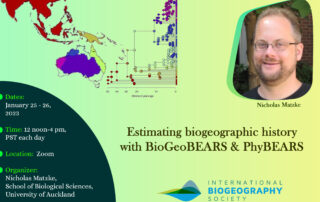Workshop — Using microclimate data and models for ecological applications
Understanding the impacts of global change on organisms and ecosystems requires data and models that represent ecologically-relevant conditions. Here we will provide a hands-on coding workshop to understand microclimate data, and use R packages (e.g. NicheMapR, microclimf, TrenchR) to mechanistically predict microclimate anywhere on the terrestrial planet. This will include retrieving remote sensing data to [...]




